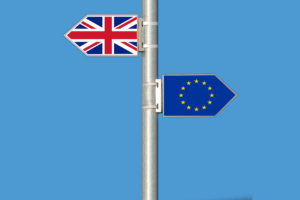Debate on Brexit
The Cultural Political Economy of Brexit
1st of May, 2020

Andreas Novy
The first debate organized by the International Karl Polanyi Society (IKPS) is on Brexit. The short essays offer rich insights in understanding contemporary developments, helping to explain the difficulties of finding progressive answers and implementing effective political strategies. Brexit exposed old issues of class struggles entangled in conflicts about social protection, lost identities and habitation. And it, once again, exposed the North-South divide that inspired Antonio Gramsci´s reflection on hegemony – turned upside down in the UK. In the 1930s, George Orwell reflected in his “The Road to Wigan Pier” on the difficult alliance of the Southeastern middle class and the Northern working class. It was in this specific conjuncture in which Karl Polanyi was earning his living in workers education. For these courses for the deprived British working class he collected the data and gained the knowledge to write “The Great Transformation”, reflecting on the links between political economy and socio-cultural dynamics, modernization and tradition, improvement and habitation. He obtained skills and insights that made him, in the words of Ngai-Ling Sum and Bob Jessop, a proto-cultural political economist.
Although not new, these old topics of uneven development and class alliances are posed with renewed urgency under the conditions of Brexit, as the prolonged debate on Brexit further eroded longstanding social and political loyalties and traditional class politics. Confronted with more than a simple political crisis, British politics before and after Brexit is faced with multiple crises, leading to an interregnum, shaped by uncertainty and volatility.
All contributions in this first debate agree that the vote for Brexit is related to political-economic discontent; but all include cultural explanations, especially when discussing the declining trust in the Labour Party. There is agreement that neoliberalism is facing a legitimation crisis, that trust in business-as-usual policy-making is shrinking, but this applies to traditional forms of political organization and cultural belonging as well. The differences in the contributions reside in evaluating the outlook for post-Brexit (and post-Covid-19) politics.
Kevin Morgan is probably the most optimistic in identifying potentials for progressive change in the current delegitimation of British politics, due to the dispute on Brexit, the exhaustion of neoliberalism and the mismanagement of the Covid-19 crisis. In the best of the cases, this renewed opportunity (after the failures following 2008) will open new room of manouevre to strengthen the foundational economy, the essential economic activities that enable a civilized, good and secure life. This foundational renewal is not impossible under the current conservative government, as Johnson´s extreme electoral opportunism has, according to Matthew Watson, led to a bizarre policy shift of the former radical neoliberal Tories. While Ngai-Ling Sum and Bob Jessop call it “authoritarian neoliberalism”, Watson stresses Johnson´s shift to “nationalist politics of habitation”. There might by room of manoeuvre to re-invent forms of “municipal socialism”, introduced by liberal conservatives in the 19th century due to social pressure from below. Chris Hann offers a short history of a Welsh valley, while Mikael Stigendal describes an episode and shows empathy with Joker, the tragic villain in Superman. Both use their stories to dwell on the decline of the Labour Party, its loss of working class roots and the profound alienation from the party establishment. There is, they observe, no longer an organic alliance of middle and working classes. The complexity of the double movement, of marketization and resistance, is exposed by Ngai-Ling Sum and Bob Jessop who are skeptical of a renewed pendular shift away from neoliberal marketization. Brexit is over, but “the organic crisis of the British state and society” continues.
The way out of this impasse is not easy. But, according to Mikael Stigendal, there is no alternative to making an effort to better understand the life world of the working class. Karl Polanyi learned a lot in teaching in popular and workers education. In line with Polanyi´s anti-elitist form of intellectual agency, knowledge alliances – partnerships of researchers and practitioners – could help to foster a common understanding of ordinary people and intellectuals. They might offer insights during and after the pandemia to deal with Trump’s, Bolsonaro’s and others deliberate attempts to attract precarious working and middle classes with anti-scientific discourses.
Andreas Novy
IKPS Board Director
Read all essays on Brexit here:

Chris Hann
Brexit in the Valley of the Crow

Kevin Morgan
Post Pandemic Brexit

Matthew Watson
The Conservative Party's Impossible Brexit Politics
of 'Habitation vs. Improvement'

Bob Jessop & Ngai-Ling Sum
Brexit as a double movement?

Mikael Stigendal
Culture, Politics and the Economy:
From a happy to an awkward relationship